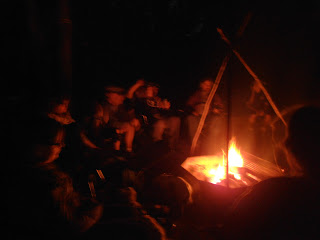Crafty
I cringe when I hear someone called "crafty", and I doubt I will ever feel comfortable using the word on someone who does crafts. This is one of those situations where common misuse legitimizes an error, like the modern spelling of "donut". What was once improper becomes not only accepted, but more commonly used than the original. Language changes with use. It is alive that way, and I fully accept that describing someone as crafty now means that they either enjoy doing crafts or excel at them, or some combination of the two. It just doesn't sit right that way in my vocabulary. When I first encountered the word, it didn't apply to crafts at all. If you were good with your hands or inclined to crochet, whittle or make collages, people might say you were creative, talented or industrious. To say you were crafty would be mildly insulting. It meant you were up to something, something that probably had little to do with yarn or glitter- unless

